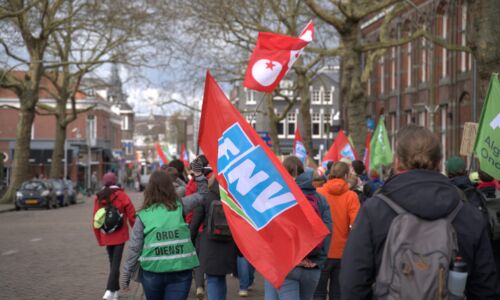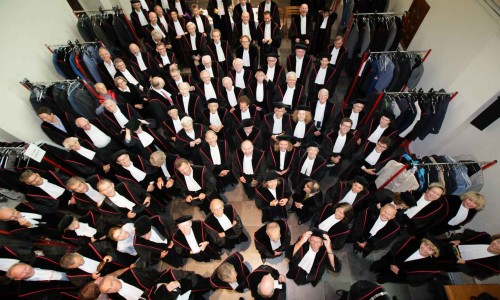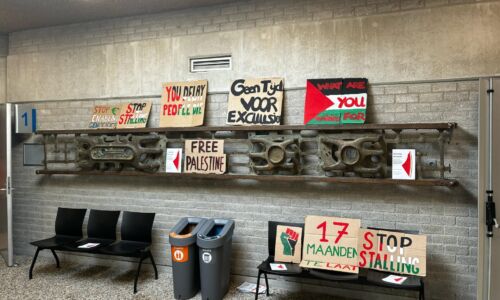Make the world a little better: refugee theatre
-
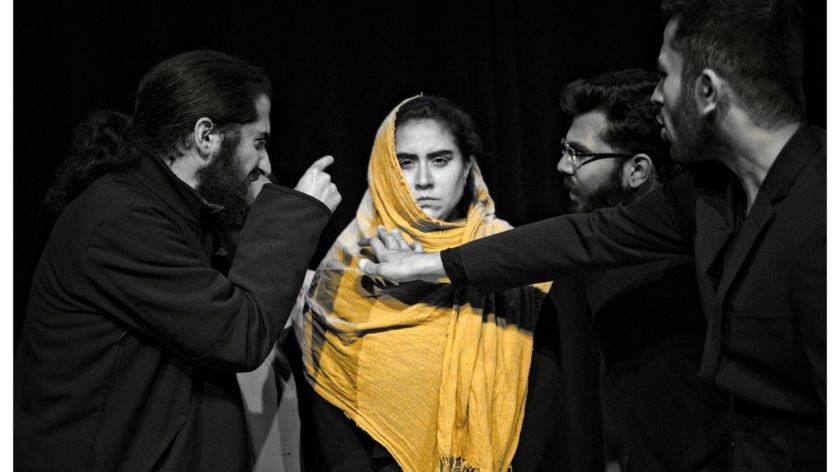 Scene in the play Home Again. Photo: Bart Notelaers
Scene in the play Home Again. Photo: Bart Notelaers
You don't immediately have to change the world, but do something! After Lucas de Man, theater producer, called for small-scale action last month, Vox found three students that give a good example. The second student is Madelief Lenders, master student behavioural science. Together with her colleagues from theater group WOW-EFFECT she reveals the person behind the refugee.
Why did you want to create a play about refugees?
Madelief Lenders: ‘When we were searching for ideas for a new play, one of media’s hot topics was refugees. But a lot of people haven’t got a clue what they should think about this topic. That’s why we wanted to create a play in which the situation of refugees isn’t the most important theme, but in which it’s all about the person behind it.’
Tanya de Kruijff (director and playwright): ‘People often talk about refugees the way they talk about global warming, a ‘thing’. But it’s about people like you and me, with stories and feelings.’
How did you develop the play?
Huzefa Zavery (actor and playwright): ‘We visited refugee camps in the Netherlands and Germany to get inspiration from refugees. It was an intens process in which we heard a lot of stories. The more people we talked to, the stronger our drive became to make these stories heard. For example, the story of a man who had to choose between leaving his loved ones behind to find a better future, or stay behind with the constant threat of death. Or the woman who got isolated when she moved here, and called names on the street. Out of the stories we heard, we created five sketches. One of the guys told us such a powerful story about love, loss, disappointment and hope, that we decided to tell his entire story. He is a refugee from Egypt who left everything behind and despite all insecurities, he keeps on fighting and stays positive about the future. Very inspiring, we were all very touched by it.’
Lenders: ‘During the writing process and rehearsals I often asked myself whether we did the refugees justice in the play. Especially when Sufian, who is a refugee, joined us in rehearsal, I thought: “Who am I to write anything about refugees?” Fortunately, he was very positive.’
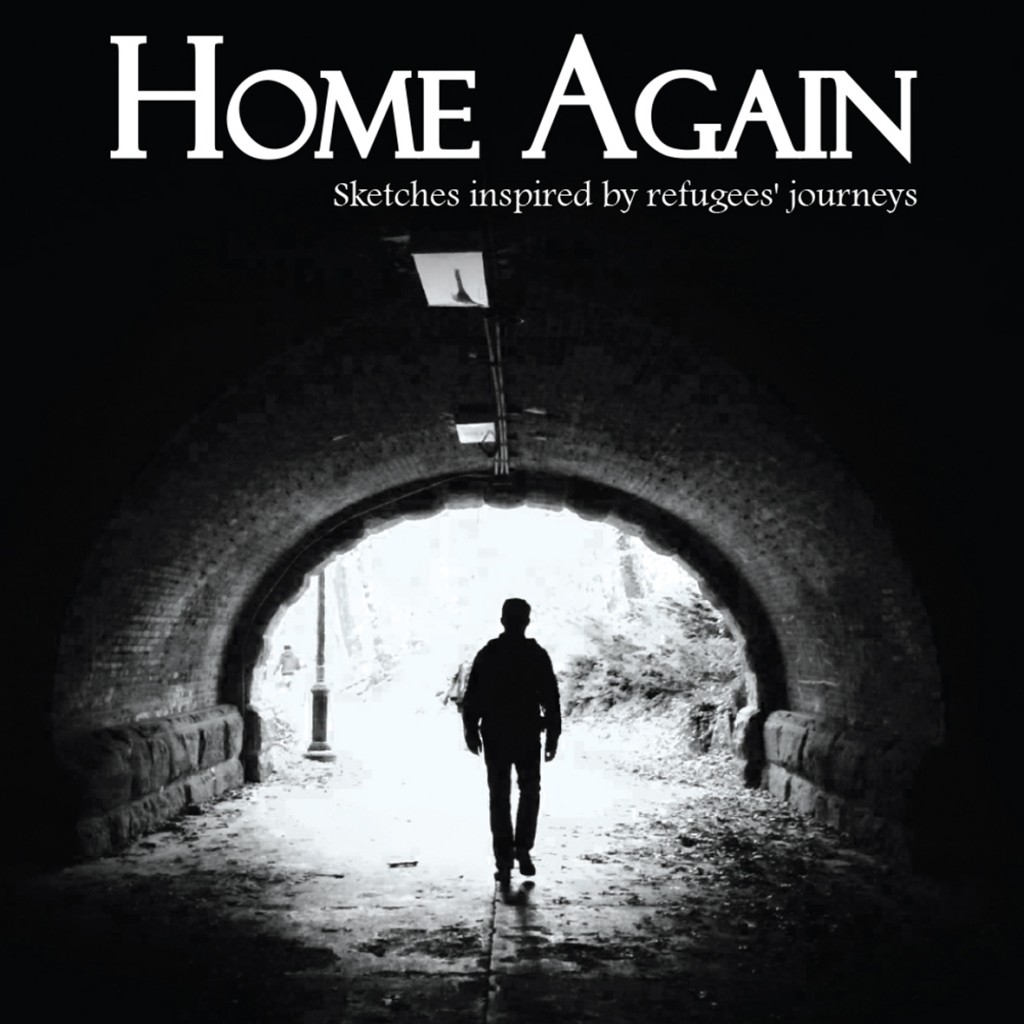 And how did the performance go?
And how did the performance go?
Zavery: ‘The first performance was emotionally exhausting. The story and the emotions really hit us actors. We really needed some time to breathe afterwards.’
Lenders: ‘At one point during the play, we heard some people making snuffling noises. “Are they crying?” we asked each other. That was the moment we realised we were touching hearts and we had really created something special.’
De Kruijff: ‘The two performances in Nijmegen were for a mostly Dutch audience. This November, we also did a performance in Kleve, and a lot of refugees were in the audience. The best compliment was that they were touched. “We are happy that our story is now being told,” they said.’
Lenders: ‘We thought it would be over after two performances, but the audience told us we shouldn’t stop now. We have a message worth spreading.’
Will the story be spread further?
Sufian Sasila (musician and refugee): ‘One of our former actors is in Rome now, he is looking for a location to perform there. We will only be able to do this if we can manage to collect enough money, that’s what we’re working on now.’
De Kruijff: ‘In the meantime, Hogeschool Arnhem en Nijmegen has asked us to perform in International Week, and refugees from Oss and Kleve would love to see the play. We are also researching our possibilities to make a film out of it. If it were up to me, we’d travel the world with this play. If only that wouldn’t require so much money…’
Translation: Tanya de Kruijff. You can find more information about the play here. To get an impression, watch the trailer:
